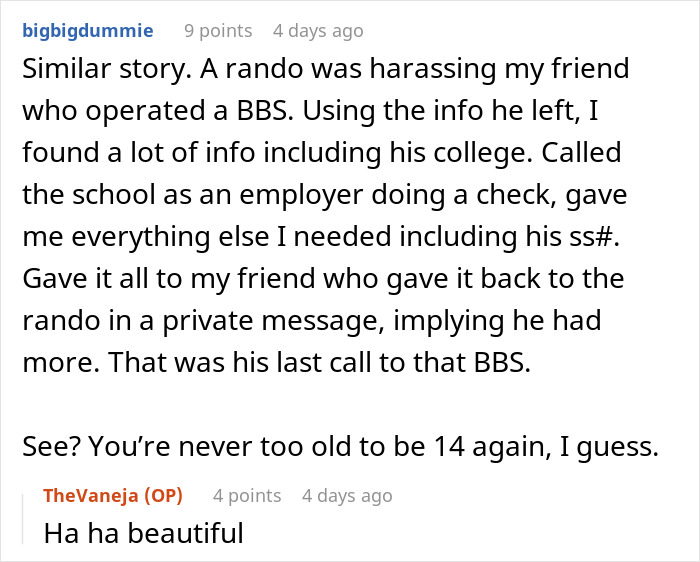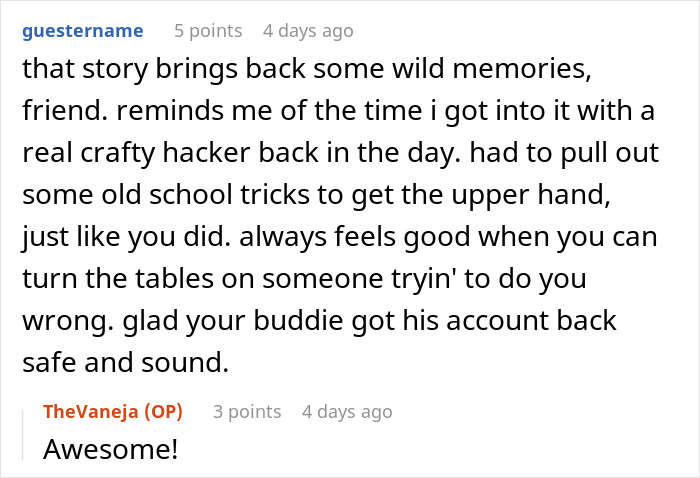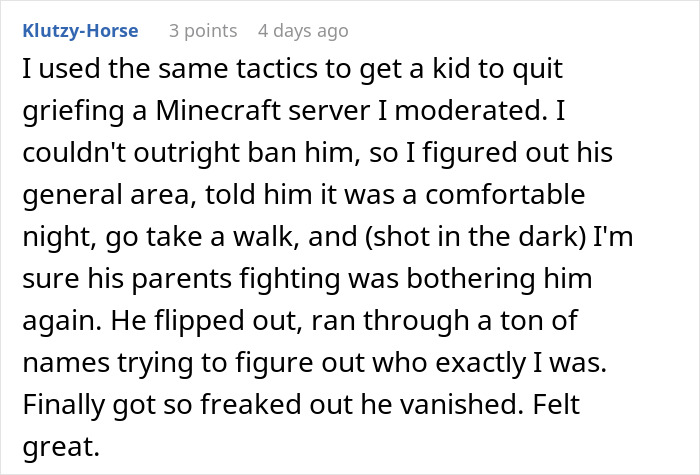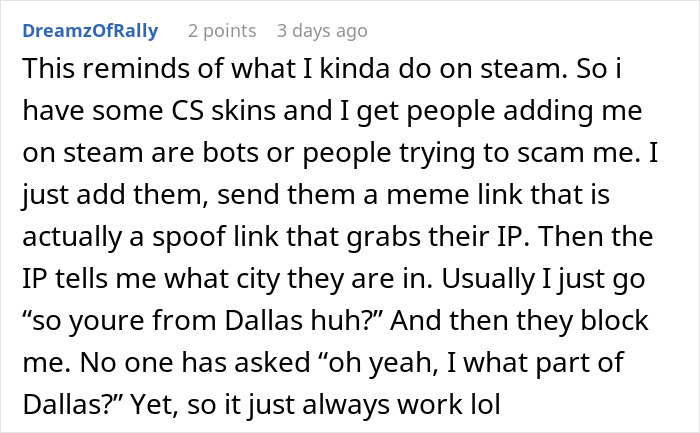Gaming in the early 2000s was a lot different than it is now. Anyone remember the good ol’ days of playing RuneScape? Granted, many people still play it now (49.46 million, according to MMO Populations), but the importance of an account might be lost on some of today’s youth.
Not to this old-school gamer, though. Recently, she shared a story about how she got a friend’s account back from a “hacker.” Why the quotation marks? Because the big scary hacker turned out to be a pre-pubescent kid who didn’t know any better than to try to intimidate other gamers online. Luckily, the other gamer’s friend was well-versed in basic Internet, so she was able to scare the young rascal away and get her friend’s account back.
Bored Panda got in touch with the Redditor who shared this story, u/TheVaneja. She was kind enough to have a short chat with us, and she told us all about what the Internet was like in the early 2000s and whether it’s safer online now. Read our conversation with her below!
Back in the early 2000s, RuneScape was all the rage, and gamers really valued their accounts
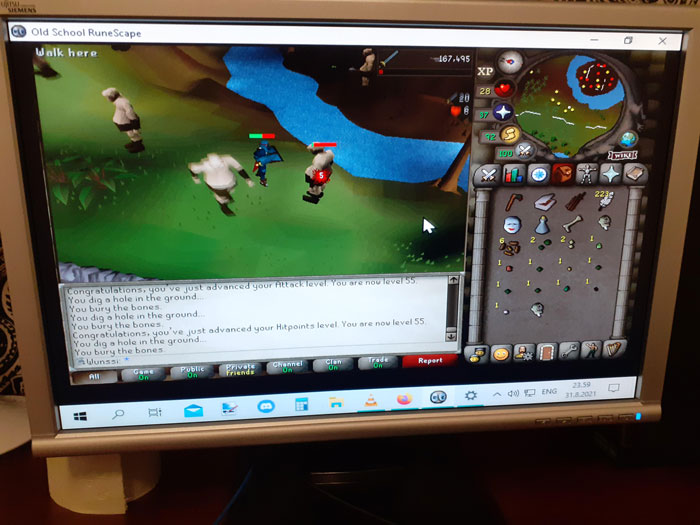
Image credits: Trekapalooza / Reddit (not the actual photo)
When a hacker stole one gamer’s account, his friend didn’t hesitate to come to the rescue
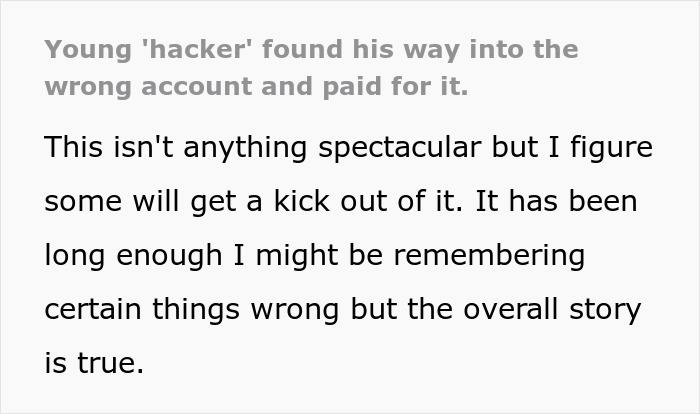
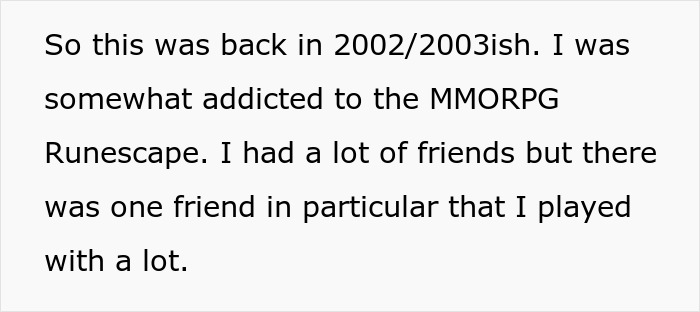
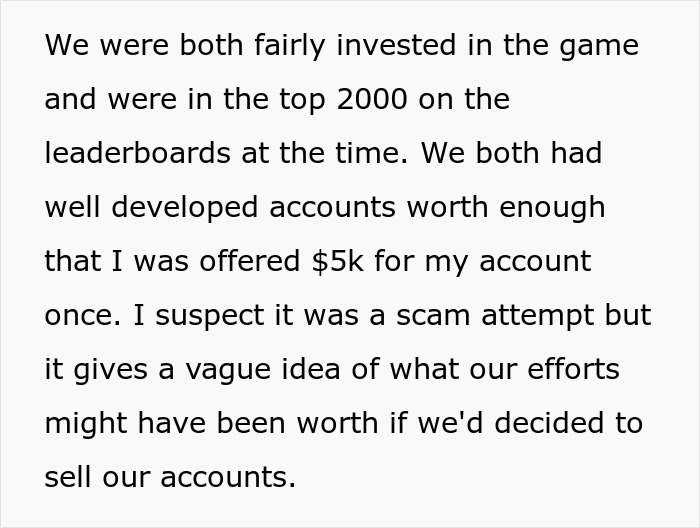

Image credits: Ketut Subiyanto / Pexels (not the actual photo)
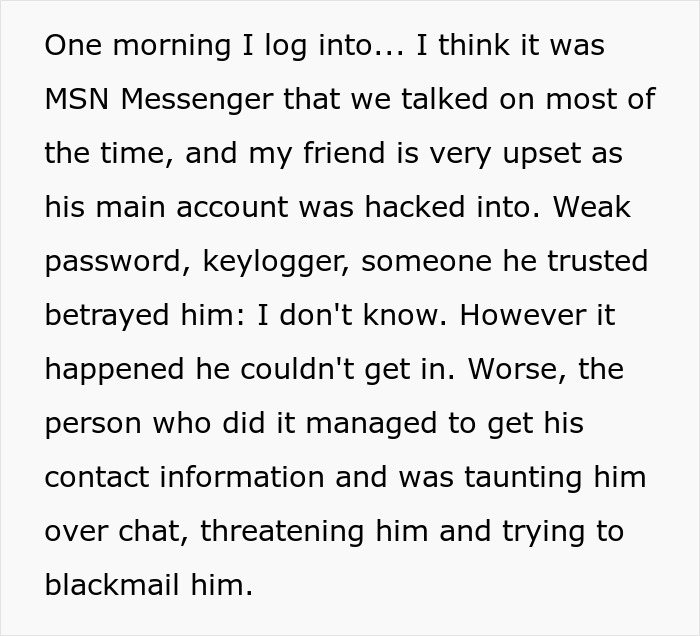

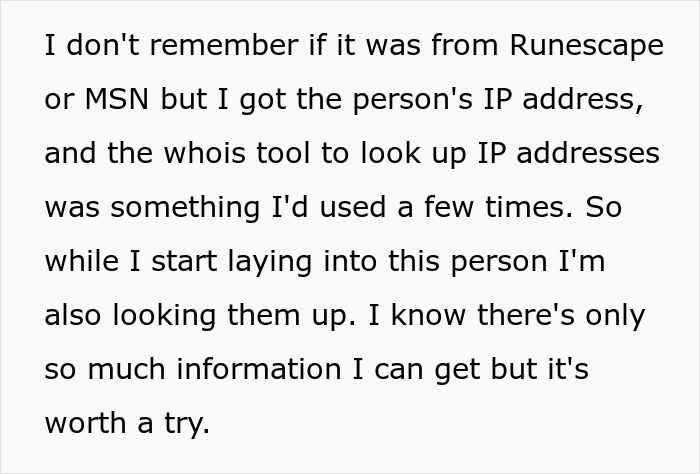
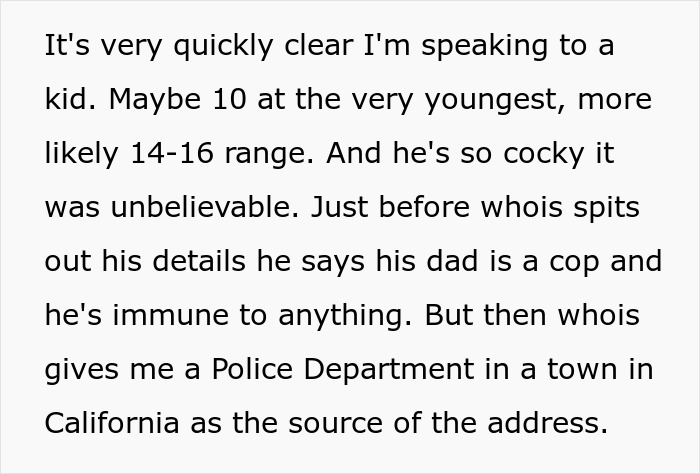
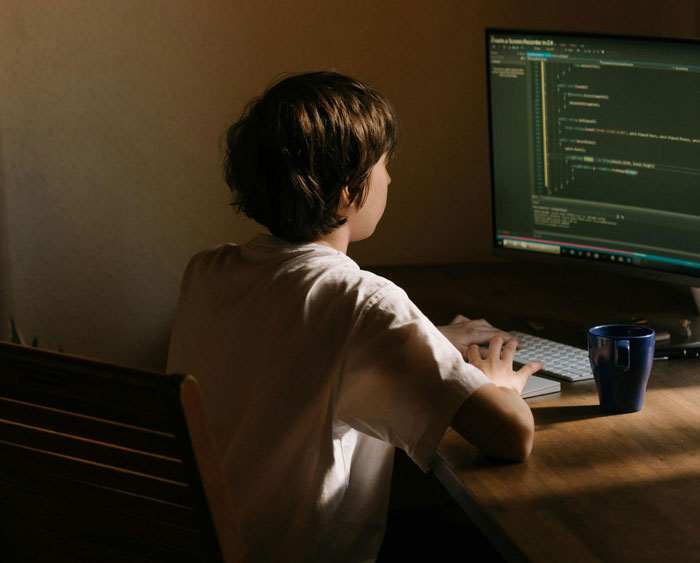
Image credits: cottonbro studio / Pexels (not the actual photo)
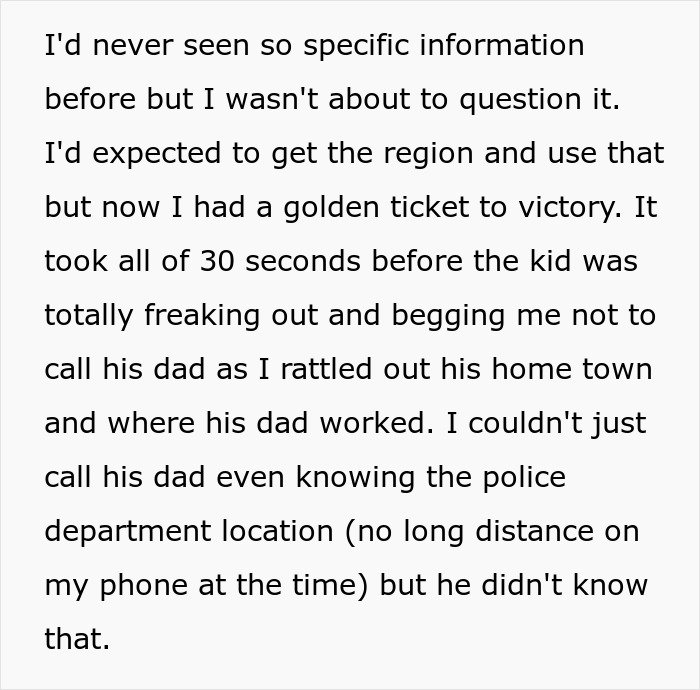
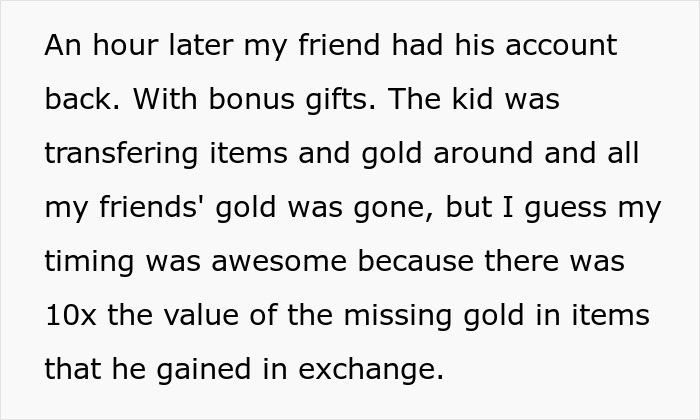

Image credits: TheVaneja
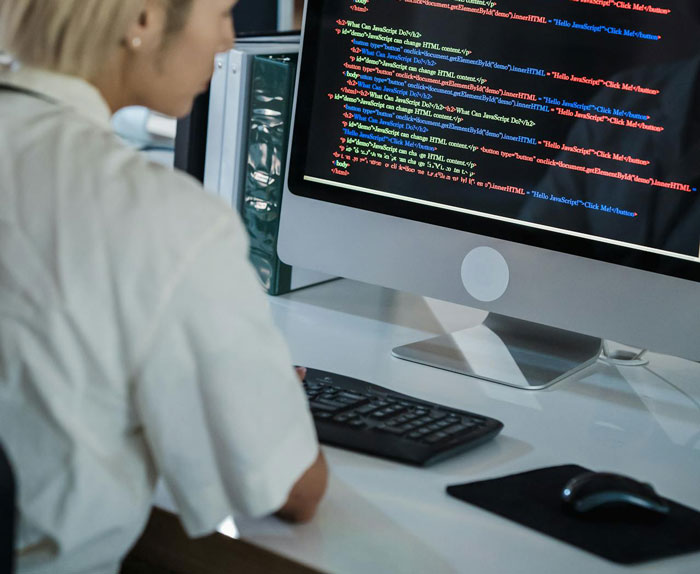
Image credits: Mizuno K / Pexels (not the actual photo)
The gamer who saved the day, u/TheVaneja, told Bored Panda where she learned the tricks she used against the kid hacker
“I’ve had the story kicking around in the back of my head since it happened,” the Redditor told us when asked why she decided to share the story with other netizens. “I never really figured it was worth posting, but I’ve read some stories that were exceptionally weak in the last couple [of] months, so I figured why not.”
u/TheVaneja says this was her only direct encounter with someone getting their account hacked. “Every now and then, I heard of someone getting hacked or the like, but it was always distant. This particular incident I stumbled into while it was happening, and I was only able to do anything because the kid had stepped out too far and exposed himself. If he hadn’t been taunting my friend and had just vanished, he’d have got away with it clean.”
Although the gamer didn’t do anything particularly fancy, just looked up the kid on WHOIS, we were still curious to know where she learned what to do in this situation. “I blame FFIX (Final Fantasy IX), more specifically the guide to FFIX that required you [to] go to their website to get the information that should have been printed in the guide to begin with.”
“There was a forum semi-hidden in the site that was 100% unmoderated. Oh, the early internet days. I learned most [of] everything there, from HTML [and] WHOIS to setting up proxy servers and spoofing your IP address. And some stuff I’ll spend the rest of my life trying to forget,” she adds.
What she means, of course, is that with unmoderated communities come all sorts of nasty individuals. “I don’t recall how long it took before Square-Enix realized their forum was the OG 4chan, but it took a while,” she reminisces. “Well, maybe I’m being unfair. I was still pretty new to the net in 1999; there [were] probably worse places.”
The Redditor thinks that the unregulated Internet was way worse back then. “In some ways, I’m a strong supporter of free speech. But some things aren’t free speech; they’re just horrible crimes. My frequency of running into horrible crimes today is incalculably small and mostly limited to spoilers. In 1999, there were things [that gave] one nightmares. Fortunately, the people doing it were massively outnumbered, but they weren’t invisible, and you could run into them much easier.”
We asked u/TheVaneja what she thinks about the Internet now. Is it easier to keep one’s personal information safe? “All the same tricks to keep you safe now were already around then, except two-factor [authentication],” she says.
“But smartphones were still science fiction. I think my typical password by the end of 1999 was [around] 20 characters with numbers, symbols, and random capitalizations. Things have changed a little since, but two-factor [authentication] is the only real change.”
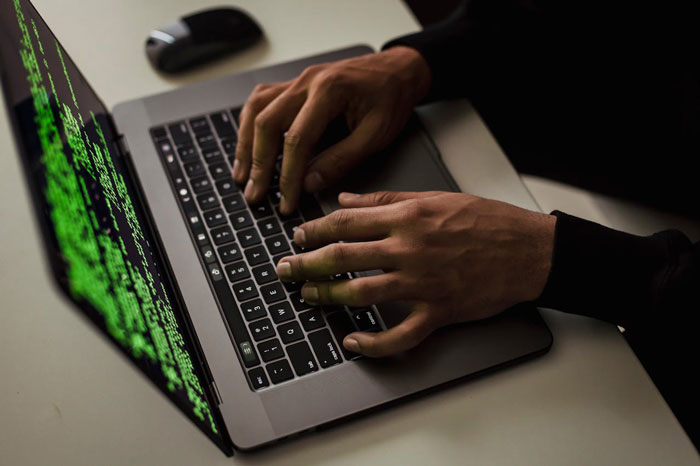
Image credits: Sora Shimazaki / Pexels (not the actual photo)
Many people still become victims of fraud online, so it’s important to know how to be safe
The number of cases where individuals had their personal data compromised online has risen significantly in the past few years. According to Statista, in 2023, there were 3,205 cases in the U.S. alone, and 353 million people were victims of data breaches, leakage, and exposure. This is different from getting hacked in a game: the industries most vulnerable to data breaches were healthcare, financial services, and manufacturing.
Online gaming poses other risks. Whether it’s account takeovers, receiving malware, or becoming victims of scams and fraud, people should know how to stay safe online. The National Cybersecurity Alliance claims that a strong password may be the most important element of safeguarding one’s identity online.
Although it sounds exhausting and we’ve all probably heard it before, at least 12-character passwords containing letters, numbers, and symbols are your best bet. Luckily, we have password managers nowadays that do the job for us – many smartphones and web browsers have already integrated them.
As u/TheVaneja mentioned earlier, multi-factor authentication can be a real lifesaver. MFA also includes biometrics (face and fingerprint ID), one-time codes, and security keys. Another thing that might save gamers from hackers is updating their hardware and software. The easiest way to do this is to automate updates so you get notified whenever one is available.
The National Cybersecurity Alliance also recommends using a credit card instead of a debit. “Credit cards come with more consumer protections than debit cards, and you have a better chance of getting your money back in case of fraud,” they explain.
Although many people already do this, experts advise staying as anonymous as possible while gaming, except when you’re doing it with people you know. That also goes for sharing personal information about yourself: name, age, country of residence, and so on.
She added more info to the story in the comments
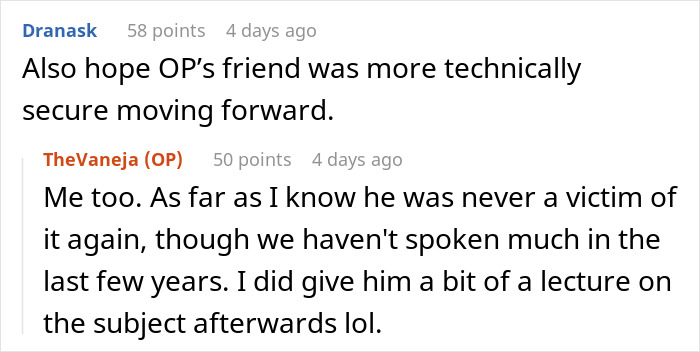
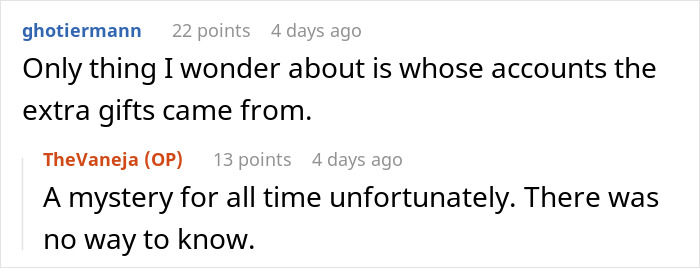
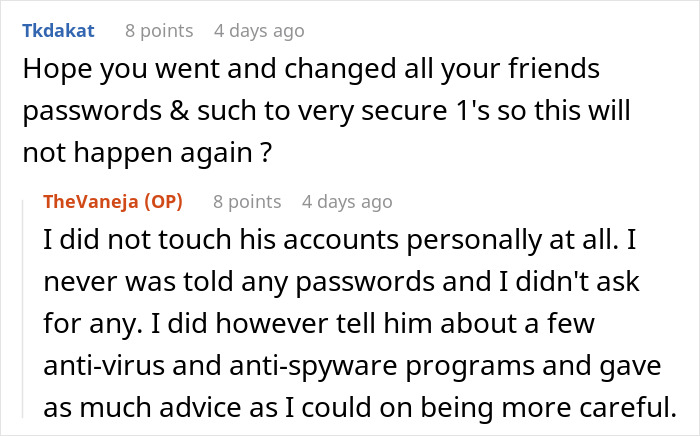
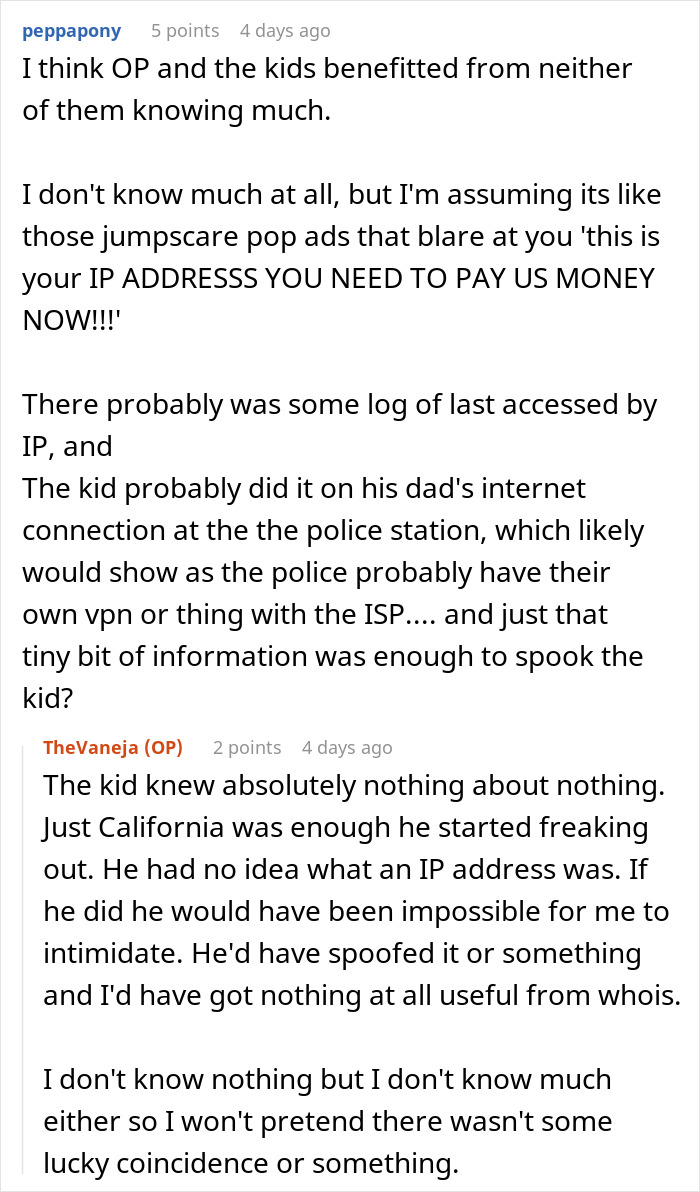
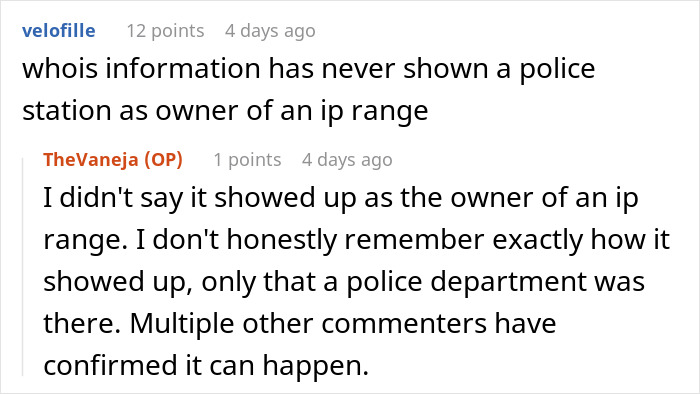
People praised the counter-hacker for her ingenuity

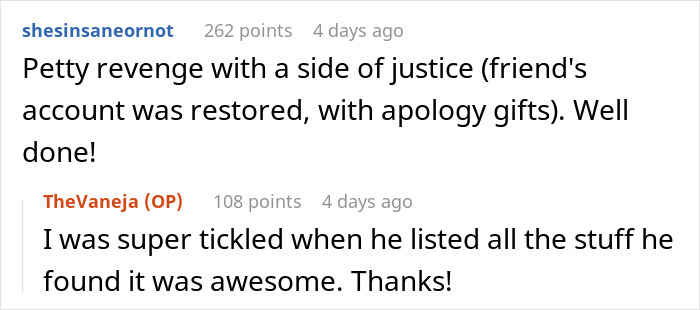
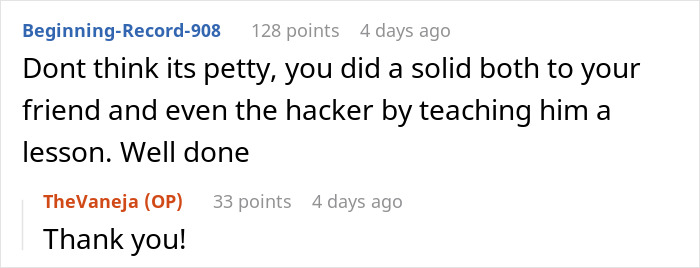
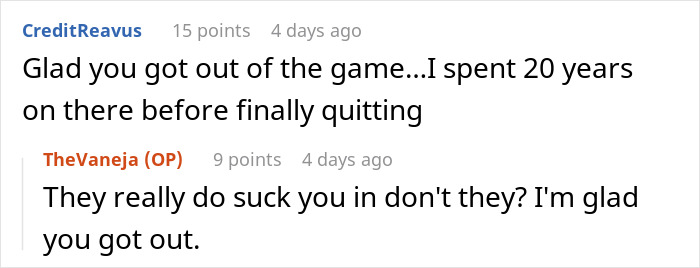


A couple of commenters shared similar stories
